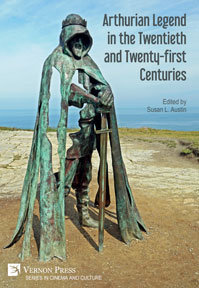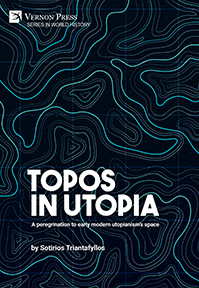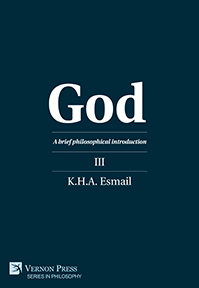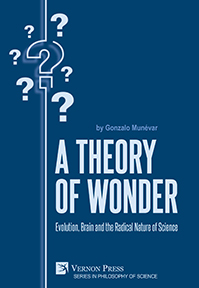Search
Browse
by Publication status
by Subject
Anthropology (26) Art (171) Business and Finance (38) Cognitive Science and Psychology (63) Communication and Journalism (51) Economics (116) Education (71) History (169) Human Geography (23) Interdisciplinary (43) Language and Linguistics (178) Law (16) Music Studies (18) Philosophy (222) Political Science and International Relations (127) Sociology (404) Statistics and Quantitative Methods (21)by Series
Series in Literary Studies (62) Series in Philosophy (57) Series in Education (49) Series in Sociology (42) Series in World History (31) Series in Politics (30) Bridging Languages and Scholarship (26) Series in Language and Linguistics (25) Cognitive Science and Psychology (20) Series in Philosophy of Religion (20) Series in American History (19) Series in Art (19) Critical Perspectives on Social Science (16) Series in Cinema and Culture (16) Curating and Interpreting Culture (15) Series on the History of Art (14) Series in Anthropology (13) Series in Critical Media Studies (13) Economics (13) Series in Business and Finance (12) Series in Music (12) Series in Performing Arts (9) Philosophy of Personalism (8) Series in Communication (8) Series in Law (8) Series in Economic Methodology (7) Series on Climate Change and Society (7) Classics in Economics (6) Series in Economic Development (6) Women's Studies (6) Philosophy of Forgiveness (5) Series in Built Environment (5) Series in Economic History (5) Series in Philosophy of Science (4) Series in Social Equality and Justice (4) Series on the History of Science (4) Serie en Sociología (3) Series in Contemporary History (3) Series in Creative Writing Studies (3) Series in Design (3) The Interdisciplinary Built Environment (3) Series in Heritage Studies (2) Series in Innovation Studies (2) Serie en Ciencias Políticas (1) Serie en Comunicación y Medios (1) Serie en Entorno Construido (1) Serie en Estudios Culturales (1) Serie En Estudios Literarios (1) Serie en Filosofía (1) Serie en Música (1) Series in Classical Studies (1) Series in Economics of Technological Change (1) Series in Philosophy of Race (1) Series in Urban Studies (1)by Language
English Spanishby Author
Arthurian Legend in the Twentieth and Twenty-first Centuries
Edited by
Susan L. Austin, Landmark College
Availability: In stock
184pp. ¦ $61 £46 €52
The King Arthur we imagine did not exist in history. He is the result of stories told and retold, changed and added to by storytellers for centuries, each making the story reflect the storyteller’s time and values. The chapters in this book look at movies, manga, comic books, a television show, and traditional books released since 1960 to explore some of the ways King Arthur has been reimagined in the past 60 years. Interpreting Avalon High and The Kind Who Would Be King, Camelot 3000 and King Arthur vs. Dracula, Fate/Zero, John Steinbeck’s The Acts of King Arthur and His Noble Knights, the influence of Arthurian legend on Harry Potter, Terry Gilliam’s The Fisher King, John Boorman’s Excalibur, Jerry Zucker’s First Knight, Antoine Fuqua’s King Arthur, Guy Ritchie’s King Arthur: The Legend of the Sword, Matthew Vaughn’s Kingsman: The Secret Service, Iris Murdoch’s The Time of the Angels, and the BBC series Merlin, the authors find that while we are still interested in the idea of King Arthur, we may also want his story to be more racially and gender inclusive, less elitist, and in some cases, more secular.
Florentine Ariosto Jones: A Yankee in Switzerland and the Early Globalization of the American System of Watchmaking
Frank Jacob, Nord University, Norway
Availability: In stock
129pp. [Color] ¦ $75 £55 €62
This book recounts the story of Florentine Ariosto Jones, who after the Civil War decided to manufacture watches. Combining the cheap labor available at the time in Switzerland with US manufacturing technologies, Jones embarked on his venture to produce affordable watches for the American market. Consequently, he became a pioneer in the business of outsourcing labor for economic purposes through his contracting of labor to Europe. While the company still exists today, very little is known about Jones. The present book will undoubtedly change this by telling the fascinating story of an American adventurer and his pursuit to globalize American watchmaking at the end of the 19th Century.
Topos in Utopia: A peregrination to early modern utopianism’s space
June 2021 / ISBN: 978-1-64889-269-1Availability: In stock
344pp. ¦ $71 £52 €59
'Topos in Utopia' examines early modern literary utopias' and intentional communities' social and cultural conception of space. Starting from Thomas More's seminal work, published in 1516, and covering a period of three centuries until the emergence of Enlightenment's euchronia, this work provides a thorough yet concise examination of the way space was imagined and utilised in the early modern visions of a better society. Dealing with an aspect usually ignored by the scholars of early modern utopianism, this book asks us to consider if utopias' imaginary lands are based not only on abstract ideas but also on concrete spaces. Shedding new light on a period where reformation zeal, humanism's optimism, colonialism's greed and a proto-scientific discourse were combined to produce a series of alternative social and political paradigms, this work transports us from the shores of America to the search for the Terra Australis Incognita and the desire to find a new and better world for us.
God: A brief philosophical introduction III
K.H.A. Esmail, University of Cambridge
Availability: In stock
449pp. ¦ $73 £53 €60
This is a clear and original investigation of God’s nature and existence. First of all, it considers (among other things) two of God’s traditional properties: being all-knowing and being all-powerful. It argues he cannot possess these properties. But, it argues this is in accord with him being worthy of worship. Secondly, it introduces the notion of evil being “overridden”. It argues he has to bring about other free living things and it is plausible they have to be liable to experience evil due to their conditions. But, it argues the evil in this world is “overridden”. Thirdly, it considers the principal arguments for the claim he does not exist. (They refer to the evil in the world.) It argues they do not establish sufficient grounds for this claim. Finally, it considers some well-known arguments for the claim he exists. It argues they face difficulties. It sets out other arguments: eg, some arguments to increase any degree of belief one has that God can exist. It includes a number of Appendices: God’s sovereignty; Are there sufficient grounds for the claim that, very probably, God does not exist?; Theodicy and some theodicies; Some further remarks on God and time; Some further remarks on a living thing which possesses the power to do this or that freely; ... It covers as a whole the principal parts of the Philosophy of Religion. It unifies these parts to a significant degree. It proceeds regularly by way of formal and clear arguments. It will be of interest to advanced students and specialists in Philosophy, Religious Studies, and Theology. Given its explanation of key terms, its jargon-free language, its clarity and brevity.... , it will be of interest to others, too.
A Theory of Wonder: Evolution, Brain and the Radical Nature of Science
Gonzalo Munévar, Lawrence Technological University
Availability: In stock
206pp. [Color] ¦ $73 £53 €60
‘A Theory of Wonder’ aims to determine the best way science can satisfy our sense of wonder by exploring the world. Empiricism tells us that science succeeds because it follows the scientific method: Observation passes judgment on Theory – supporting or rejecting it. Much credit is given to the inventor of the method, Galileo, but when historically-minded philosophers of science like Kuhn and Feyerabend called our attention to what Galileo actually wrote and did, we were shocked to find out that Galileo instead drives a dagger through the heart of empiricism; he strikes down the distinction between theory and observation. Plain facts, like the vertical fall of a stone, ruled out the motion of the Earth. To conclude that the stone really falls vertically, however, we must assume that the Earth does not move. If it does move, then the stone only “seems” to fall vertically. Galileo then replaced the “facts” against the motion of the Earth with “facts” that included such motion. This process is typical during scientific revolutions. A good strategy for science is to elaborate radical alternatives; then, and on their basis, reconsider what counts as evidence. Feyerabend was called irrational for this suggestion; but looking at the practice of science from the perspective of evolution and neuroscience shows that the suggestion is very reasonable instead, and, moreover, explains why science works best as a radical form of knowledge. It also leads to a sensible biological form of relative truth, with preliminary drafts leading to exciting discussions with other researchers in the philosophy of science. This book will be of particular interest to university students, instructors and researchers in history or philosophy of science, as well as those with a general interest in the nature of science.






